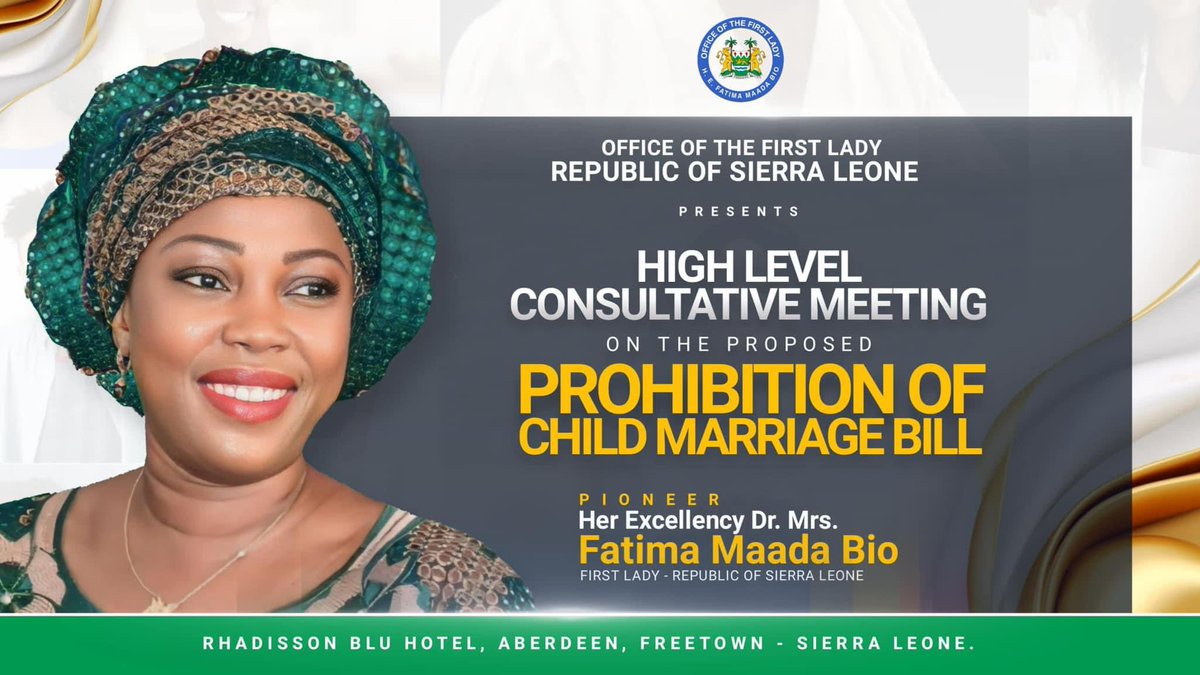INTRODUCTION
Sierra Leone has witnessed a surge in gambling interest in recent times, marked by the advent of sports betting giants such as Mercury International and 1XBET Sierra Leone, coupled with the establishment of casinos. This article delves into the legal intricacies surrounding unenforceable gambling contracts in the jurisdiction, emphasizing the need for robust legislative reform to align with the dynamic landscape of this burgeoning sector.
ELIGIBILITY TO PARTICIPATE IN GAMBLING
In Sierra Leone, gambling is legally permissible for individuals who have attained the age of majority, set at 18 years or older.
The economic impact of gambling is undeniable, as evidenced by the recent imposition of a 10% tax on betting companies in the 2024 Finance Act. The existing regulatory framework is primarily rooted in the Common Law, the Law of Contract, and two statutes—the Lotteries Act (Cap 32 of the Laws of Sierra Leone, 1960) and the Gaming Act of 1845 (applicable under section 74 of the Courts Act, 1965).
INVALID GAMBLING CONTRACTS UNDER STATUTES
Despite the legality of gambling in Sierra Leone, gambling or gaming contracts face limitations as regards enforceability. Section 5 of the Lotteries Act expressly declares the sale or contract for the sale of lottery tickets void.
However, section 6 of the same Act further states that “nothing in this Ordinance contained shall apply to or prevent the sale by raffle or lottery of articles exposed for sale at any bazaar or fancy fair held for raising funds in aid of any institution of a public character provided that permission for such sale shall have been given in writing by the Minister.”
Section 18 of the Gaming Act of 1845 maintains a position that underscores the unenforceable nature of certain gambling or wagering contracts. Before the coming into effect of the Gaming Act 1845, the Common Law of England used to enforce wagering contracts, and actions were maintainable on a wager, although the parties had no previous interest in the question on which it was laid, provided it was not against the interest or feelings of third parties and did not lead to indecent evidence and was not contrary to public policy.
This position was significantly altered by section 18 of the Gaming Act supra. The said section states that: “…all contracts or agreements, whether by parole or in writing, by way of gaming or wagering, shall be null and void; and that no suit shall be brought or maintained in any court of law or equity for recovering any sum of money or valuable thing alleged to be won upon any wager, or which shall have been deposited in the hands of any person to abide the event on which any wager shall have been made: provided always, that this enactment shall not be deemed to apply to any subscription or contribution, or agreement to subscribe or contribute, for or toward any plate, prize, or sum of money to be awarded to the winner or winners of any lawful game, sport, pastime, or exercise.”
The first part of section 18 makes gaming and wagering contracts invalid at the outset, i.e., before the event contemplated by the wager has occurred. The appropriate consequences of this part could be relief before the event by way of declaration and perhaps an order for the delivery of a written agreement as well as the dismissal of an action brought to recover a sum won on the event. Transactions under this enactment are considered by law as mere wagers; neither party can recover the amount won. Whether the Gaming Act is pleaded in an action or not, the court will, of its own motion, refuse to enforce payment on a wagering contract.
The second part of the section prohibits the bringing of suits for recovering any sum of money or valuable thing alleged to be won upon any wager. The effect of this second limb of the section is to bar an action to recover anything alleged to be won upon any wager without, in any way, limiting the application of the provision to the wagering contract itself. Therefore, wagering contracts, though legal, are unenforceable at law. Thus, an agreement to pay the amount lost on the wager is invalid and unenforceable even if made for some fresh consideration.
A wagering contract within the ambit of an agency provides a spectacular situation concerning enforcement. Where an agent receives money from his principal, he cannot resist an action for its recovery by pleading that he received it in respect of wager. A principal who makes a successful bet through an agent can, therefore, recover any winnings the agent has received from the agent. But the principal has no right of action against his agent for not making bets for him in accordance with his instructions.
Section 18 of the Gaming Act of 1845 renders certain gambling or wagering contracts null and void. This provision significantly altered the common law position on enforcing wagering contracts, prohibiting suits for recovering sums won on wagers. The effect is a legal invalidation of gaming and wagering contracts, rendering them unenforceable. The section’s second part extends the bar on actions to recover anything won on a wager, reinforcing the unenforceable nature of such contracts.
CONTRACT LAW AND UNENFORCEABLE BETTING CONTRACTS
Like all contracts, gambling contracts fall under the purview of contract law. If any vitiating factor vitiates a gambling contract or violates fundamental contract principles, it becomes unenforceable. The Ugandan case of Game Concepts and Mweru Rogers (Civil Appeal 71 of 2012)[2014] UGHCCD 60(16 April 2014) exemplifies this stance, where a bet placed on an inexistent or undeterminable subject matter was deemed unenforceable.
In instances where someone is employed to participate in an illegal game bet, the court, guided by public policy considerations, will not enforce the contract. Public policy concerns and the absence of a lawful purpose render such contracts unenforceable.
CONCLUSION
As Sierra Leone’s burgeoning gambling sector continues to grow, it is crucial to consider the risks associated with making gambling contracts enforceable. The jurisdiction must tread cautiously to avoid opening the floodgates to a myriad of legal challenges and adverse economic consequences.
Examining global precedents, particularly in renowned gambling hubs like Las Vegas, Nevada, provides valuable insights. In Nevada, the enforceability of gambling contracts hinges on specific circumstances. Broadly speaking, such contracts are not enforceable if they involve illegal forms of gambling or violate Nevada gaming laws. This cautious approach reflects an awareness of the potential pitfalls associated with legally binding gambling agreements.
Private social gambling, a legal practice in Nevada, introduces another layer of complexity. While the gambling itself is permissible, contracts associated with private social gambling may not be readily enforceable in court. This reluctance stems from a judicial wariness to inadvertently encourage private social gambling through contract enforcement.
Sierra Leone must weigh these considerations carefully. It is paramount for the jurisdiction to strike a delicate balance that encourages responsible gambling practices while mitigating the risk of unintended legal consequences. In doing so, Sierra Leone can foster a regulated and thriving gambling industry without compromising legal integrity and economic stability.
Hassan Conteh works in the Law Firm of Michael and Michael







